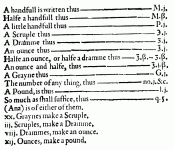Hah! I had to think about that! 😀It may have created the capacities of Alan Turing.
I remember the Guinea price being quoted in old adverts for Hi-Fi equipment as a way of extracting more money out of your pocket if you didn't pay attention!Somewhere I read that the Guinea had something to do with animal auctions.
P.S. One Guinea equals 21 shillings, folks!
I admit having googled if Imhof is a Dutch name. It would have explained a lot. It appears German and we never say anything bad about them don't we? They have had their share 🙂
Last edited:
P.S. One Guinea equals 21 shillings, folks!
One guinea = 4,032 quarter farthings 😀
P.S. The abbreviation for guinea is g or gn. 😎
The original guinea coin was minted between 1663 and 1814 and contained one quarter of an ounce of gold. It was legal tender then, but a nice collector's item now.
There wasn't a guinea coin in those days, you just forked out one shilling extra for every pound you spent!A guinea was considered a more gentlemanly amount than £1. You paid tradesmen, such as a carpenter, in pounds but gentlemen, such as an artist, in guineas.
The original guinea coin was minted between 1663 and 1814 and contained one quarter of an ounce of gold. It was legal tender then, but a nice collector's item now.
One definitely needs these in 2021 when buying cheese or meat. Ordering a pond kaas is normal, ordering 2 pond kaas will get one corrected to "oh 1 kilo".
Ha! We have this in common: we buy a „pfund“ bread, meat, etc. (or a „Halb-Pfünderli“ (250 gr., bread only), but never „2 Pfund“ which is corrected to a kilo.
Meanwhile, some in berlin and probably hamburg still speak of a Pfund (pound) meaning a DM (€) 20.– banknote. That’s from when a pound sterling was around 20 Deutsche Mark…
"...fitted with a special bass port of the right size..." (my emphasis)
Good to know. But I want hyperbole in my descriptions and hyperbola in my bass tubes.
Good to know. But I want hyperbole in my descriptions and hyperbola in my bass tubes.
Ordering tweeëneenhalve ons kaas (250 gram of cheese) is normal. Almost none will say a quarter of a kilo. Some may use "250 gram". Saying een half pond kaas (the Swiss „Halb-Pfünderli“) will not cause a frown although it is exactly the same, 250 gram. Saying vijf ons kaas wil get one corrected to "oh een pond" 🙂 So some non metrical habits are embedded in the metrical system ... somehow.
Last edited:
℥ is the medieval symbol for an ounce
ʒ is the medieval symbol for a dram
℈ is the medieval symbol for a scruple
℞ is the medieval symbol for a recipe
ʒ is the medieval symbol for a dram
℈ is the medieval symbol for a scruple
℞ is the medieval symbol for a recipe
Condenser (in cooling/Verfahrungstechnik) is also Kondenser in German. Condense being Kondenswasser.
actually not.
never heard of "Kondenser" in German heat transfer machines.
also no article in german wikipedia for "Kondenser".
Kondensator – Wikipedia
One second, first sentence (although I was just teasing Charles Darwin as explained).
Kondensator (Verfahrenstechnik – Wikipedia)
"Ein Kondensator (oder Kondenser) ist ein Apparat, in welchem......"
Just copying the link straight from the browser gives an error .
Kondensator (Verfahrenstechnik – Wikipedia)
"Ein Kondensator (oder Kondenser) ist ein Apparat, in welchem......"
Just copying the link straight from the browser gives an error .
Last edited:
Some slight mistakes in the parentheses above
Try it this way
Kondensator (Verfahrenstechnik)
- in heat transfer and refrigeration
Kondensator (Elektrotechnik)- passive electrical component
.
Try it this way
Kondensator (Verfahrenstechnik)
- in heat transfer and refrigeration
Kondensator (Elektrotechnik)- passive electrical component
.
Last edited:
....Just copying the link straight from the browser gives an error .
{as Caramello says} The right parenthesis falls off.
Kondensator_(Verfahrenstechnik
I forget why this happens, who to blame. But we can't change Wikipedia and this forum software will change some day.
actually not.
never heard of "Kondenser" in German heat transfer machines.
also no article in german wikipedia for "Kondenser".
Main thing is that while a Kondensator has a Kapazität you can't call it Kapazitator.
That just sounds so wrong it makes my toe nails curl up.
Actually the right paren is preserved but not as part/parsed of the URL. Over at Wiki, that is an error.
Kondensator (Elektrotechnik – Wikipedia
Kondensator (Elektrotechnik – Wikipedia
Attachments
Good morning, "Kapazitator" is a wonderful word. Excellent to check if everything is OK after a visit to the dentist.
Meanwhile this is the absolute best "chaos-thread" ever. I am proud to be an active non topic poster.
Meanwhile this is the absolute best "chaos-thread" ever. I am proud to be an active non topic poster.
Main thing is that while a Kondensator has a Kapazität you can't call it Kapazitator.
That just sounds so wrong it makes my toe nails curl up.
I remember in a Physics lesson at school (~1970), the teacher asked a question (can't remember what the question was) but the question made me think of the variable vane "thing" that I'd seen in valve (tube) radios - my father had told me what it was called but I couldn't quite remember the word. I put my hand up and when asked I said "capacitator" to which I was congratulated in nearly getting the right answer - capacitor of course.
- Home
- General Interest
- Everything Else
- Those pesky Abbreviations!



